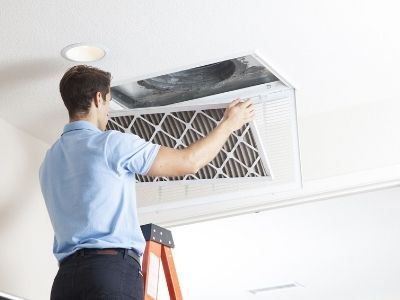3 Tips To Help You Breathe Easier This Spring!
Spring allergies can turn an otherwise beautiful time of year into an unpleasant and uncomfortable struggle for many people. Between the sneezing, the congestion, and the itchy eyes, it can be hard to find any kind of relief. And while it may seem counterintuitive, many people often experience the worst symptoms inside their own homes. This is because allergens from outside make their way indoors and get stuck there. Fortunately, there are a few ways to fight back and reclaim the indoors.
Open a Few Windows
The first, and perhaps the easiest, way to help cut down on spring allergies is to open some windows throughout the home. This may seem counterintuitive since pollen and other seasonal allergens originate outdoors, but the outdoor air typically has much lower concentrations of these pollutants compared to indoor air.
Opening the windows, particularly on pleasant, breezy days, can help purge the indoor air and replace it with fresh air from outside. As an added benefit, homeowners can turn off their AC and let the breeze cool their home naturally, saving energy costs.

Change the Air Filters
The next way to come out on top of this allergy season is to regularly replace the home’s air filters and consider whether a different type of filter may be necessary. Since particulates such as dust and pollen tend to accumulate inside the house, the HVAC system’s air filters are, in a way, the last line of defense.
There are a few different types of filters, ranging in price and effectiveness. Fiberglass filters are generally the least expensive but typically can’t capture smaller pollutants like pollen and mold spores. Pleated filters are somewhat more expensive but can capture a much wider range of pollutants. HEPA (high-efficiency particulate air) filters can capture even the tiniest contaminants, but they are costly and most often used in hospitals and industrial settings.
The tradeoff with using a more effective filter is that it will make the HVAC unit work harder to pull in air. This is why it’s important to consult with a heating and cooling expert to determine what kind of filter the unit can handle without sacrificing performance. Regardless of the type of filter, it’s crucial to replace it around every three months to prevent dust from blocking airflow or contaminating the system.
The third tip for helping seasonal allergies is to keep the house as clean as possible. When dust and debris are allowed to accumulate on surfaces throughout the home, it will only make matters worse for allergy sufferers. The dust will get stirred up into the air and could attract dust mites, which are known to cause allergies in their own right.
Regularly dusting, sweeping, and vacuuming the home will help keep dust to a minimum and reduce the overall volume of pollutants. Hitting the basics every week is ideal, but it’s also important to get to those oft-overlooked areas like curtains, bedspreads, and upholstery every 2-4 weeks, as these can accumulate a lot of dust. Combined with the above tips, a little spring cleaning can go a long way in defeating those seasonal allergies!
Gresham Heating and Air Conditioning have been serving its neighbors in Gresham since 1992. They offer competitive, up-front pricing, membership perks, and financing options, so there’s no one better to call for indoor air quality services in Gresham, OR!


